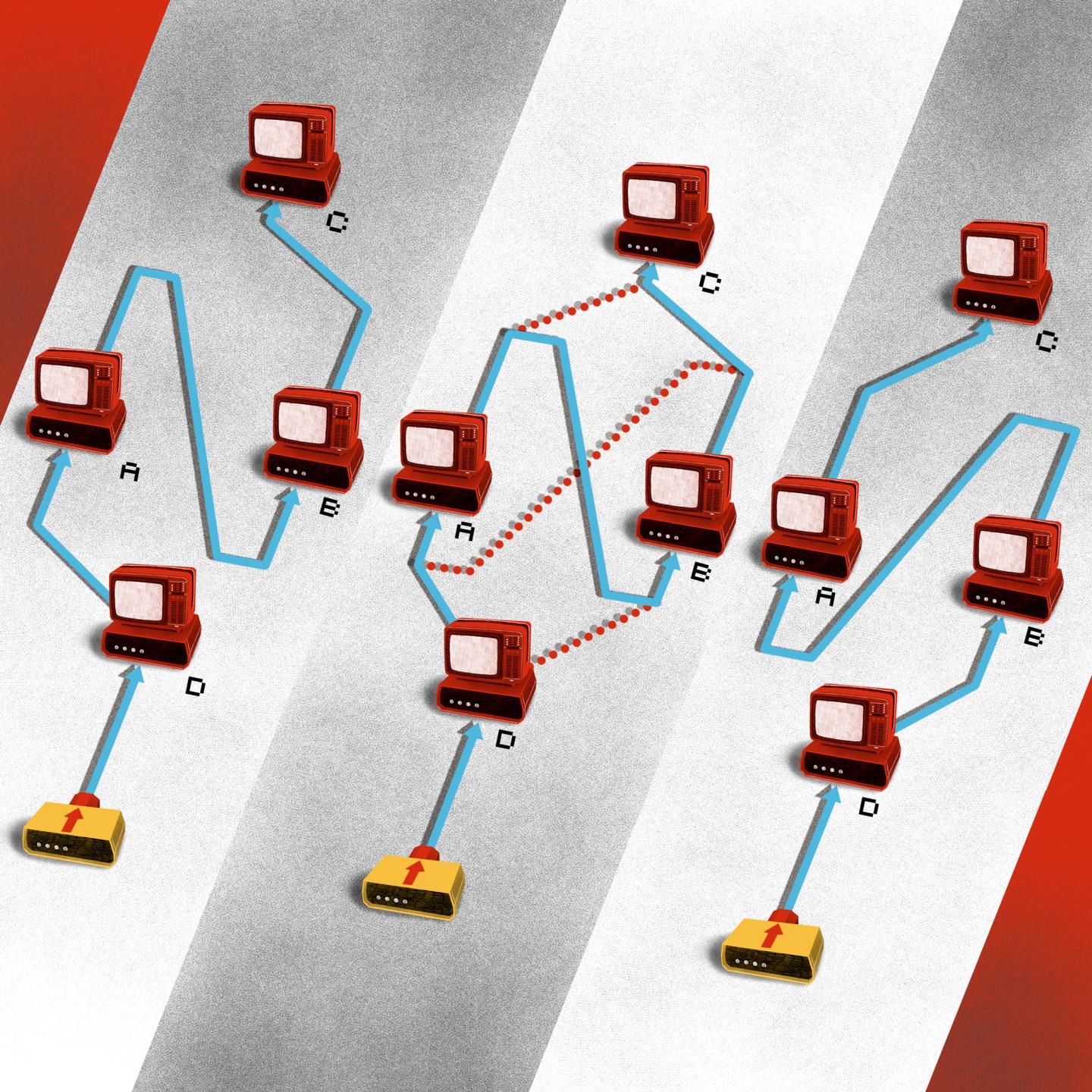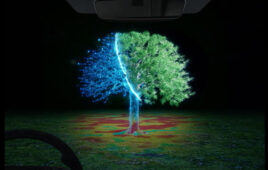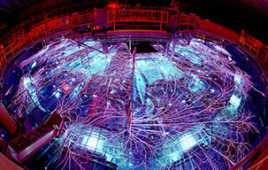
Dynamics of causal order: Party D is able to control dynamically the causal order of future events for parties A, B and C. Party D can transform the causal order between 1) Event in A happening before event in B, followed by an event in C -on the left of the picture. 2) An indefinite causal order, in which neither A is before B nor B is before A, with C being always at the end-center of the picture. 3) Event in B happening before event in A, followed by an event in C -on the right of the picture.
Researchers at the University of Vienna and the Austrian Academy of Sciences develop a new theoretical framework to describe how causal structures in quantum mechanics transform. They analyse under which conditions quantum mechanics allows the causal structure of the world to become “fuzzy”. In this case, a fixed order of events is not possible. The results are published in the renowned journal Physical Review X.
The idea that events occur one after the other in a fixed causal order is part of our intuitive picture of the physical world. Imagine that Alice can send a message to Bob via a wire that connects them. Alice decides to have a barbecue and can invite Bob via the wire connection. If he gets invited, Bob decides to prepare some ?evapči?i to bring along. This is an example where the event in which Alice decides to invite Bob to the barbecue influences the event in which Bob decides to prepare food. Such an order of events characterizes a definite causal structure. However, research in the foundations of quantum mechanics suggests that, at the quantum level, causal structures may be “indefinite”. In an indefinite causal structure there might not be a fixed order in which events happen, i.e. whether Alice influences Bob or Bob influences Alice might not be defined.
If causality is indeed indefinite, where do indefinite causal structures come from? Can they be obtained dynamically so that definite causal structures become indefinite? And, if so, under which conditions can this happen? Answers to these questions would be remarkable, because they would shed light on the nature of causality in the quantum world.
In a recent paper, published in the journal Physical Review X, a group of physicists led by ?aslav Brukner at the University of Vienna and the Vienna Institute for Quantum Optics and Quantum Information of the Austrian Academy of Sciences showed that, if the dynamics of causal structures is continuous and reversible, a definite causal structure can never become indefinite. In our example, a bending or stretching of the wire (continuous and reversible transformation) connecting Alice and Bob would not lead to any changes in the causal structure because Alice can still reach Bob. If one wants to change the causal structure, one would have to either disconnect and reconnect the wire (not continuous) or to replace the wire (not reversible). The researchers also studied more complex situations in which more parties are involved. For example, decisions by a third person, Charly, can under certain circumstances determine whether the causal order of future events is definite or indefinite.
“Our results demonstrate that under physically reasonable assumptions of continuity and reversibility a world with definite causal order will never become a world with an indefinite causal order and vice versa”, says Esteban Castro, one of the authors of the paper. This insight may lead to a more complete understanding of what the role of causality is in the quantum world.




